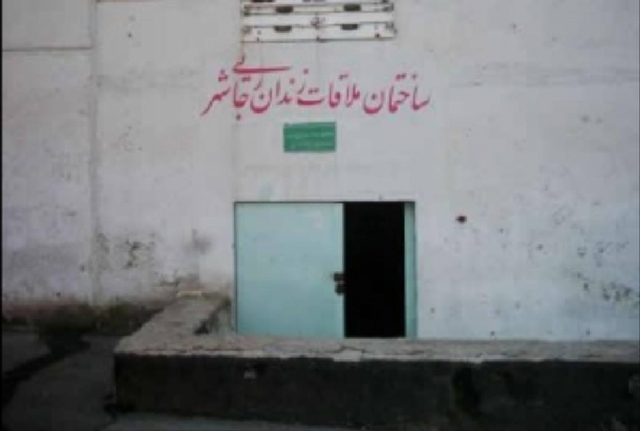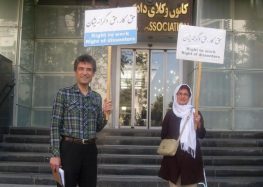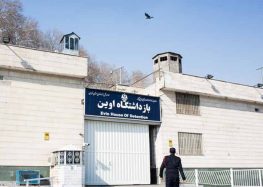New Rules at Rajaee Shahr Prison Target Political Prisoners for Harsh Treatment

Harsher rules have been imposed upon political prisoners at Rajaee Shahr Prison, already know for its grim conditions, according to relatives who have visited the facility in recent days.
Political prisoners at Rajaee Shahr Prison (also known as Gohardasht) located in Karaj, east of Tehran, are now being forced to wear plastic slippers instead of shoes during visitation sessions, their visitors are being subjected to more aggressive body searches, and they are being transferred between wards more frequently as a form of punishment.
Rajaee Shahr is one of Iran’s most notorious prisons. Most of its inmates are considered dangerous criminals, but Ward 12 holds dozens of political prisoners who have been tried and convicted by Iran’s Revolutionary Courts in prosecutions completely lacking in due process.
“The cells have no ventilation,” Mohammad Seifzadeh, a prominent human rights lawyer who was released from Rajaee Shahr prison after serving a five-year sentence, told the Campaign in April 2016. Seifzadeh said the prison was extremely overcrowded and that the “clinic did not have medicines to treat anything worse than a cold,” adding that “bad nutrition and lack of vitamins [also] weakened the prisoners.”
Previously only the prison’s regular inmates, considered hardened criminals, were forced to wear plastic slippers, but now the facility’s political prisoners—already singled out for harsh treatment—are being subjected to the same rules.
Political prisoners protested against the compulsory slippers rule on June 8, 2016 by showing up barefoot to meet their visitors, a family member told the International Campaign for Human Rights in Iran.
“[The authorities] started this new game at Rajaee Shahr about two weeks ago,” said the source. “The prisoners came to the visitation area an hour later than usual. We were very worried until we realized that there was an argument over the new compulsory slippers rule and the prisoners were not giving in. Eventually [the prisoners] came to us with their shoes on as usual.”
“But this week we waited from 8:00 to 10:30 a.m. [in the visitation area],” continued the source. “The atmosphere was very bad and tense. Nobody gave us any information. The families were worried. Finally we saw all the political prisoners coming in [to meet us] barefoot.”
Before the sudden change of rules, political prisoners were allowed to meet visitors in their personal clothes and shoes. Article 90 of Iran’s State Prisons Organization’s regulations states that prison uniforms are not compulsory “unless the Prisons Organization decides otherwise.”
The source added that officials at Rajaee Shahr prison claimed that the new order requiring political prisoners to wear slippers during visitations came directly from the Prisons Organization, allegedly to prevent inmates from smuggling contraband in their shoes.
“They say no one can wear shoes during meetings with visitors because they want to stop mobile phones and drugs from entering the prison. They are even checking visitors very carefully these days with metal detectors and electronic devices,” a relative of one of the prisoners told the Campaign. “There are also lots of guards watching [the visitation] area and there are double-glass screens completely separating prisoners and visitors.”
“It’s hard enough to see each other under these circumstances, let alone handing over everything we have in case it could be contraband!” said the source.
*On January 12, 2017 at 2:45 p.m. EST this article was revised to reflect that dozens of political prisoners are being held at Rajaee Shahr Prison.






